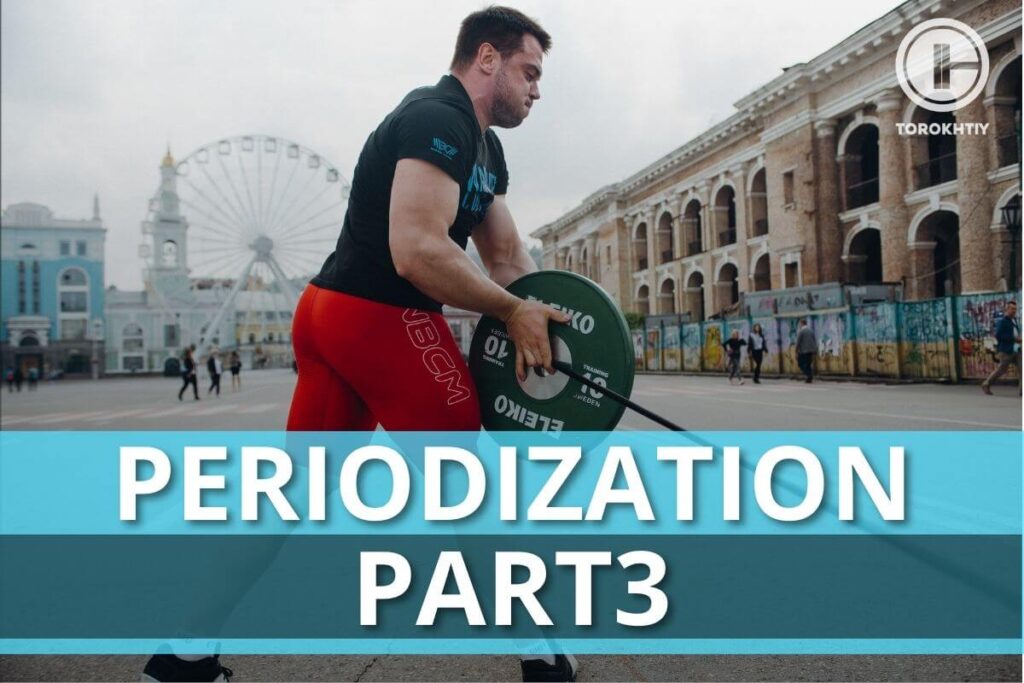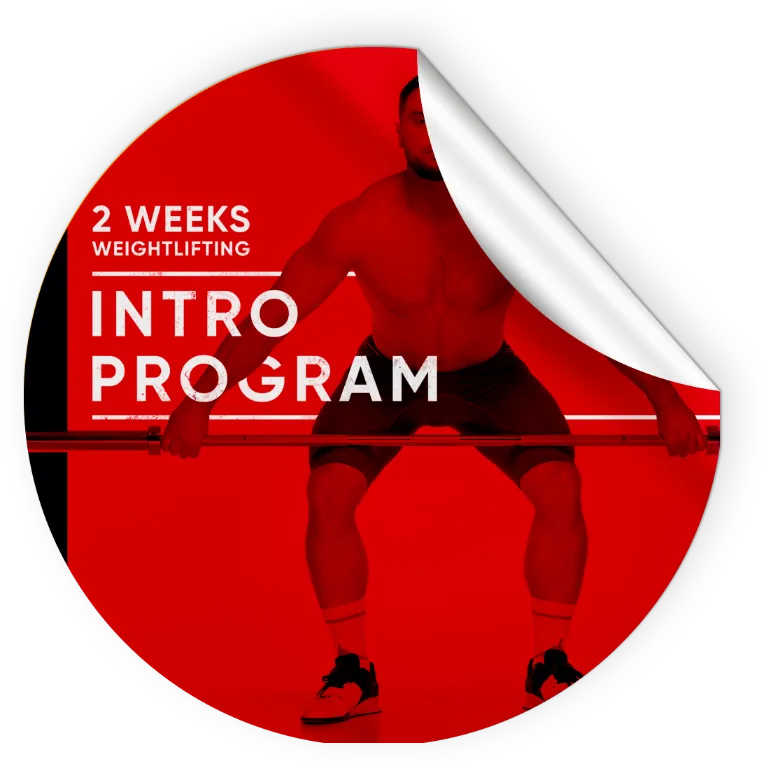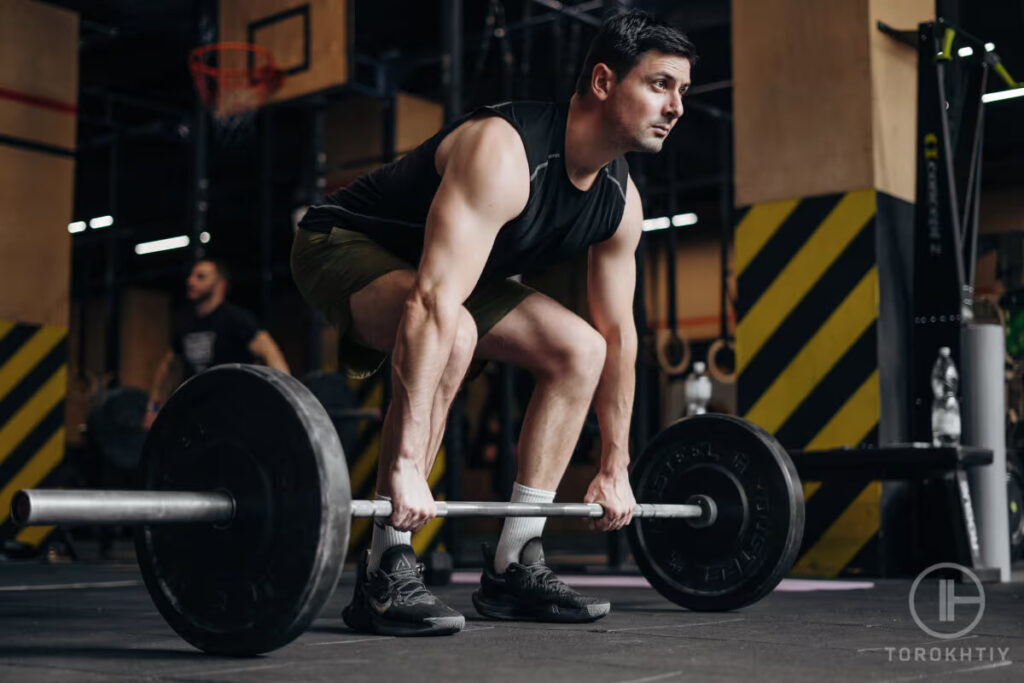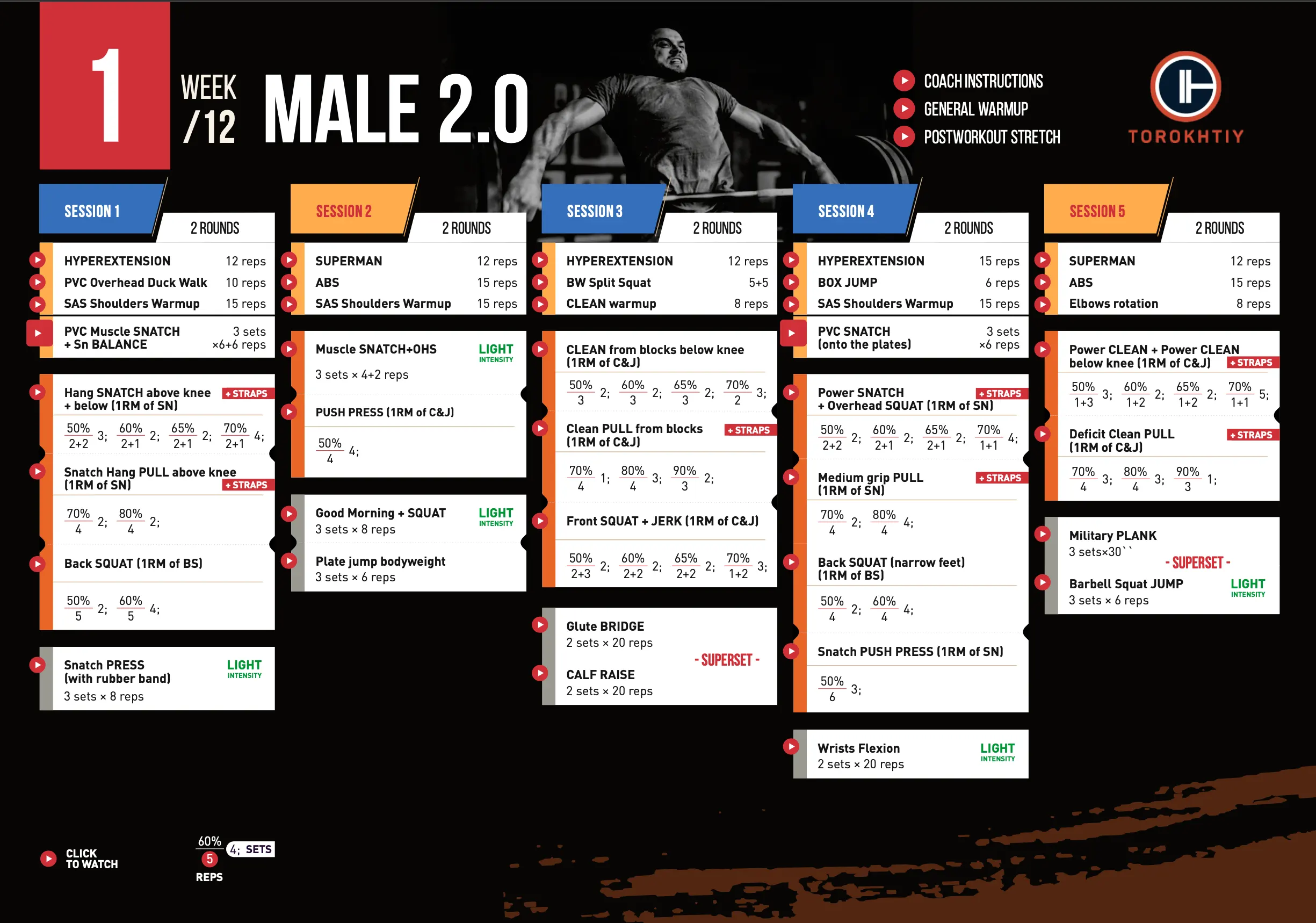Periodization Part 3
Author:
Unlock your full potential by engaging with our experts and community! Have questions about your fitness journey or looking for expert advice on weightlifting techniques? Don’t hesitate — leave a comment below and Sergii Putsov will provide a personalized answer and insights to help you reach your goals.
Torokhtiy is reader-supported. Some links are affiliate links, and we may earn a commission at no extra cost to you. See our disclosure page for details.

In a year-long preparation periodization, the competitive period takes a special place. During this exact period the athlete starts to get on the peak of the sports form and the main miscalculations and shortcomings of the passed periods can be revealed.
The main tasks of the competitive period are the preservation and improvement of the achieved level. In the process of preparation all the features of the main competitions are taken into account, starting from the tasks the athlete face to the prospective participants.
One should not forget that size of the loads in this period is largely determined by the nature of the competition, the presence of strong opponents, the emotional mood of the athlete. Important competitions affect an athlete’s body more profoundly than intense training loads and control competitions.
Follow us!

Free!
Get a 2-week Weightlifting Program as a bonus for the subscription to kickstart your training plan!

Free!
You may like it:
- Detailed Olympic Weightlifting Program For Beginners
- 12-Week Weightlifting Program For Women (Detailed Example)
- Create Your Olympic Weightlifting Program (Examples Included)
The training programs creation in the competitive period is the most controversial subject, especially recently. Thanks to media resources and the Internet, we can see the heavy lifts performed by many athletes on the eve of important international competitions and this raises controversy about how to bring athletes to the peak of the sport form indeed. Unfortunately, I do not have one right answer, moreover, I can add that it does not exist. There are many schools (Chinese, Bulgarian, Turkish, Colombian, Russian) and each of them sees the competition period in its own way and considering the fact that each of them has its own champions we may say that all of them are right.
Why do such contradictions arise? Everyone agrees to work hard and lift heavy weights during the preparatory period. Yes, there are differences and but still 2-3 months before the competition all athletes build a base. Nevertheless, a month or so before the competition athletes´programs from different countries differ significantly. And those athletes who continue lifting 90-95% in clean & jerk up to the day of the competition surprise others most, and sometimes we can see better results at the gym than at the final competitions. If it´s good or bad – that´s the question!
In any case, one must remember that in addition to the school, the loads structure always depends on the sex, age and level of the athlete. We understand that an athlete who is 18 years old with a body weight of 77 kg will not react to loads same way as an athlete who is 34 with a body weight of 160 kg.

The competition period lasts 4-5 weeks and throughout this time the volume of loads decreases, but the intensity increases. In fact, no bench exercises with a large number of repetitions (more than 3) are applied, while complex, deficit and hang auxiliary exercises (pulls, good mornings, Romanian deadlift) are minimized.
Most often in the week-long cycle, athletes perform 2 intensive trainings in which they lift heavy singles in SNATCH and C & J, the rest of the trainings are conditioned, technical or recovery.
During this period in one training they combine snatch and clean & jerk in order to model the competitions. It may be a light snatch and a heavy jerk initially or vice versa. But in 3 weeks of competitions in one training a snatch and a jerk around 90% are planned. There are many points of view about whether it is worth doing PR session in this period. As a rule, this is decided individually. In the National Ukrainian weightlifting team, we did the last heavy clean & jerk (more than 95%) no later than 21 days before the competition, and a snatch – 14. After these terms, the intensity only decreased, although 90% in the snatch sometimes had to be lifted in 5-7 days before the competition.
As for squats, the approach is very different and depends much on the strength of the athlete and on his ability to tone the leg muscles. But, of course, PR session and sets with 6-8 repetitions before the competition are out of question. The task of squats is to maintain strength and at the same time to allow the muscles to be explosive. There are athletes and whole national teams, which in their preparation make only the front squat, but there is an opinion that before the competition the athlete is supposed to give the opportunity for these parts to have some rests. Which of these is true – it´s up to you.
I pay attention to this, because, especially when young, athletes start experiencing psychological pressure 2-3 weeks before the competition and they start feeling they become weaker. Then the most dangerous thing begins – they try to “test” themselves and almost at each training they lift big weights in all successive exercises. And it drains the nervous system without any full recovery possibility.
Geographical location and the competition schedule may require the athlete to change the usual daily regime. Depending on this, when planning preparation for important performances, you need to change the working capacity curve in advance so that its rise coincides with the hours of the competition.
The next part will be dedicated to the transition period and how to train after the competition.
Train together – train right
Related articles:
You might be interested in:
Why Trust Us?
With over 20 years in Olympic weightlifting, strength training, nutrition coaching, and general fitness our team does its best to provide the audience with ultimate support and meet the needs and requirements of advanced athletes and professional lifters, as well as people who strive to open new opportunities and develop their physical capabilities with us.
By trusting the recommendations of our certified experts in coaching, nutrition, and sports training programming, as well as scientific consultants, and physiotherapists, we provide you with thorough, well-considered, and scientifically proven content. All the information given in the articles concerning workout programming, separate exercises, and athletic performance, in general, is based on verified data.
The product testing process is described in more detail here.
Author: Sergii Putsov
Head of Sport Science, PhD
Best Results: Snatch – 165 kg,
C&J – 200 kg
Sergii Putsov, Ph.D., is a former professional weightlifter and National team member, achieving multiple medals in the 94 kg weight category at national competitions. With a Master’s degree in “Olympic & Professional Sport Training” and a Sport Science Ph.D. from the International Olympic Academy, Greece, Sergii now leads as the Head of Sport Science. He specializes in designing training programs, writing insightful blog articles, providing live commentary at international weightlifting events, and conducting educational seminars worldwide alongside Olympic weightlifting expert Oleksiy Torokhtiy.




Still have questions after reading our article? Unlock your full potential by engaging with our experts and community! Don’t hesitate — leave a comment below and Sergii Putsov will provide a personalized answer and insights to help you reach your goals.